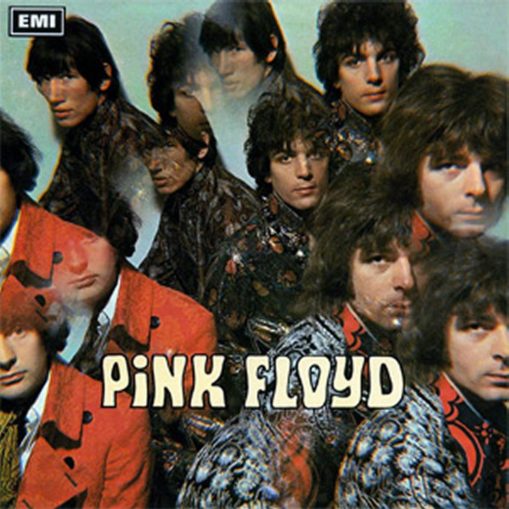
Fair Use/Fair Dealing
A friend and I, in an effort to broaden our musical appreciation, agreed to listen to and review albums we would never normally listen to. Due to the effort this involved, the scope broadened after a short while to intermittently include those albums that we would normally listen to (mostly new releases). Those albums which we would not normally listen to were selected at random from the book 1001 Albums You Must Listen to Before You Die, a book that I would not recommend.
The reviews were never intended to be published in any way but may bring some enjoyment to the fair folk of this parish.
* * *
To review the debut album of one of the greatest bands of all time from not just this sceptred isle but foreign lands also is, to say the least, daunting. The weight of the future discography lies heavy; the impact upon the soundscape of music to this day permeates every decision made on the album with an indelible importance. But, that is the task and we shan’t shy nor shrink from it but rather don the headphones and sink into the Floydsphere of 1967.
The only album of PF’s with Syd Barret having lead is a quintessentially English one. Folk elements abound with musical and lyrical whimsy aplenty mixed in with acid-induced flights of fancy and Lear-esque nonsense.
Opening with Sputnik-sounding blips over 60s Dr. Who-esque sound effects, Astronomy Domine, sets up the soul and thread of the album: chemically-induced travels to higher-plains. Or, should that be chemically-induced travels from higher plains: lime and limpid green…floating down the sound resounds…stars can frighten…. Pounding and descending drums with sonic cymbals; psychedelic organ; decent-enough guitars mix, merge, diverge for a sonic soundscape and ladder to cosmic heights.
If truth be told, without being higher than a hippie on the third day of an open-air music festival to assist one’s listening: it’s tiring. The audio-equivalent of being sober in room of drunks or grounded in a room of pill-heads. There’ll be times when you’ll be able to ride the soundwaves to astral height, but mostly you’ll be the Mark Corrigan in the club, staring around thinking “what the fuck am I doing?”.
As the opening 04 minutes 11 seconds thankfully close, we roll neatly on to Lucifer Sam, written about a cat and sounding like a cops-n-robbers car chase. If one’s being generous, we might say the song is a witty take on somebody Barret didn’t see eye-to-eye on: Jennifer Gentle, you’re a witch… that cat’s something I can’t explain. With a more traditional structure and some fantastic reverb-heavy tremolo riffing it’s only the organ which brings the sound back into the late 60s.
With Matilda Mother we’re in the realm of beautiful, wistful lyrics set over a misty and mystical soundscape: Barret reminiscing of story time with his Mother. The opening four lines read as a fairytale, suddenly cut short as the narrator to Barret closes the book: come on now, time for sleep, more tomorrow, we’re invited to imagine her saying. “Oh Mother, tell me more, why do you have to leave me there, hanging in my infant air?”. It’s innocent, beautiful – childishly otherworldly. The last verse, after a psychedelic bridge, Barret paints a picture of that room, the “dolls house, darkness, old perfume”, pleading for more: “Oh mother tell me more, tell me more…”. Interestingly enough Barret only sings the post-bridge with Richard Wright singing the first two-thirds or so.
The following three tracks (Flaming; Pow R. Toc. H; Take up thy Stethoscope) send one further down the psychedelic trip. It’s worth a listen once, but more than that and you’re back to being Mark Corrigan with your cock in hand. Probably all very fun to have made but listening over 50 years later it drags.
Interstellar Overdrive picks the pace up again with a distorted guitar intro, tight drumming and persistent, anxious bassline. It’s instrumental and comes in at just smidgen short of ten minutes. In that time the distorted guitars are replaced with plucked notes high up on the neck; the organ takes the listener on a journey to the clouds and cymbals add a further celestial element. Whilst it’s tracklisting is decent in reinjecting some much-needed energy, once again halfway one gets left behind with the far-out psychedelia of it all.
Whimsy is returned in The Gnome, worth a listen. Even if it’s got some folklore behind it it’s the victim of the album’s drudgery by now and feels little more than an entertaining song to put on to entertain toddlers in the vain of Ivor Cutler.
The final three songs return to some recognisable form of song structure rather than acid-induced jam sessions. Scarecrow has a poignancy that’s hard to pin-down whilst closer Bike takes you on a drugfest stream of nonsense about gingerbread men and girls that will fit in with your world.
Overall, if Pink Floyd hadn’t gone on to make such incredible records such as Wish You Were Here, Animals and The Wall, would this ever be on the shelf of anybody other than die-hard fans of 60s psychedelic rock? I don’t think so. Its beauty lies in providing a canvas for the comparison of post-Barret PF records.
© Cromwell’s Codpiece 2023



